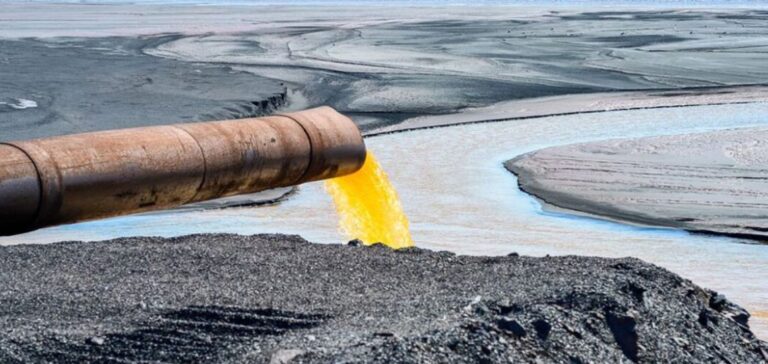On Thursday, Japan begins evacuating water into the Pacific Ocean. This water comes from the Fukushima Daiichi nuclear power plant. This plant was devastated by a giant tsunami in 2011. According to Tokyo and international experts, this operation is safe because the water has been pre-treated and the process will be extremely gradual. But some neighboring countries, particularly China, are alarmed.
Discharge of Fukushima’s contaminated water into the sea
The Fukushima Daiichi power plant generates an average of over 100,000 liters of contaminated water per day. This water comes from a variety of sources, including rain and groundwater, and has been needed for the continuous cooling of the reactor cores, which have been in meltdown since 2011. Contaminated water is recovered, filtered and stored on site, but capacity soon reaches saturation: 1.34 million cubic meters. This is equivalent to almost 540 Olympic-sized swimming pools, accumulated in over a thousand giant tanks on the site. After much deliberation, Japan has decided to discharge the water into the ocean in 2021. This is done one kilometer offshore via a purpose-built underwater conduit. The International Atomic Energy Agency (IAEA) will oversee the process. This will continue until the early 2050s. Tepco says it will evacuate up to 500 cubic meters of tritiated water daily.
Water treatment and the presence of tritium
The water is treated by a filtration process known as the Advanced Liquid Processing System (ALPS). This makes it possible to eliminate most of its radioactive substances, but existing technologies have not been able to process tritium. Tritium is a radionuclide that occurs naturally in the oceans and has little radiological impact. Inhalation of tritium can present a risk, but only very high doses are harmful to human health, according to experts. Tepco plans to dilute this “tritiated” water to reduce its level of radioactivity to less than 1,500 becquerels per liter (Bq/L). This threshold is 40 times lower than the Japanese national standard for tritiated water aligned with the international standard (60,000 Bq/liter), and around seven times lower than the ceiling set by the World Health Organization (WHO) for drinking water (10,000 Bq/liter). For decades, the world’s operating nuclear power plants have been regularly releasing tritium into the water. Nuclear waste reprocessing plants, such as La Hague in France, also discharge nuclear waste.
“We have not identified any environmental or health impact” from these practices, Tony Hooker, a radiation specialist at the University of Adelaide (Australia), told AFP. The IAEA approved Japan’s plan in early July.
International reactions and environmental concerns
Environmental organizations have criticized the Japanese plan, including Greenpeace, which accuses the Japanese government of downplaying the radiation risks. Japanese fishermen fear this will damage the image of their products. This concern extends to both national and international markets.
As for neighboring countries, China called Japan’s plan “extremely selfish and irresponsible” and criticized Tokyo for wanting to use the Pacific Ocean as a “sewer”.
In July, Beijing decided to ban food imports from ten Japanese counties, including Fukushima, citing safety concerns. Hong Kong and Macao took similar measures for Japanese seafood this week. According to analysts, China’s position is probably also highly political, against the backdrop of Sino-Japanese tensions in the Asia-Pacific region. Seoul, whose relations with Tokyo have warmed in recent months, expressed no objections. However, the opposition is critical of this issue. The South Korean population is also worried. Fearing future health risks, consumers in the country have even stockpiled salt from sea water.






















